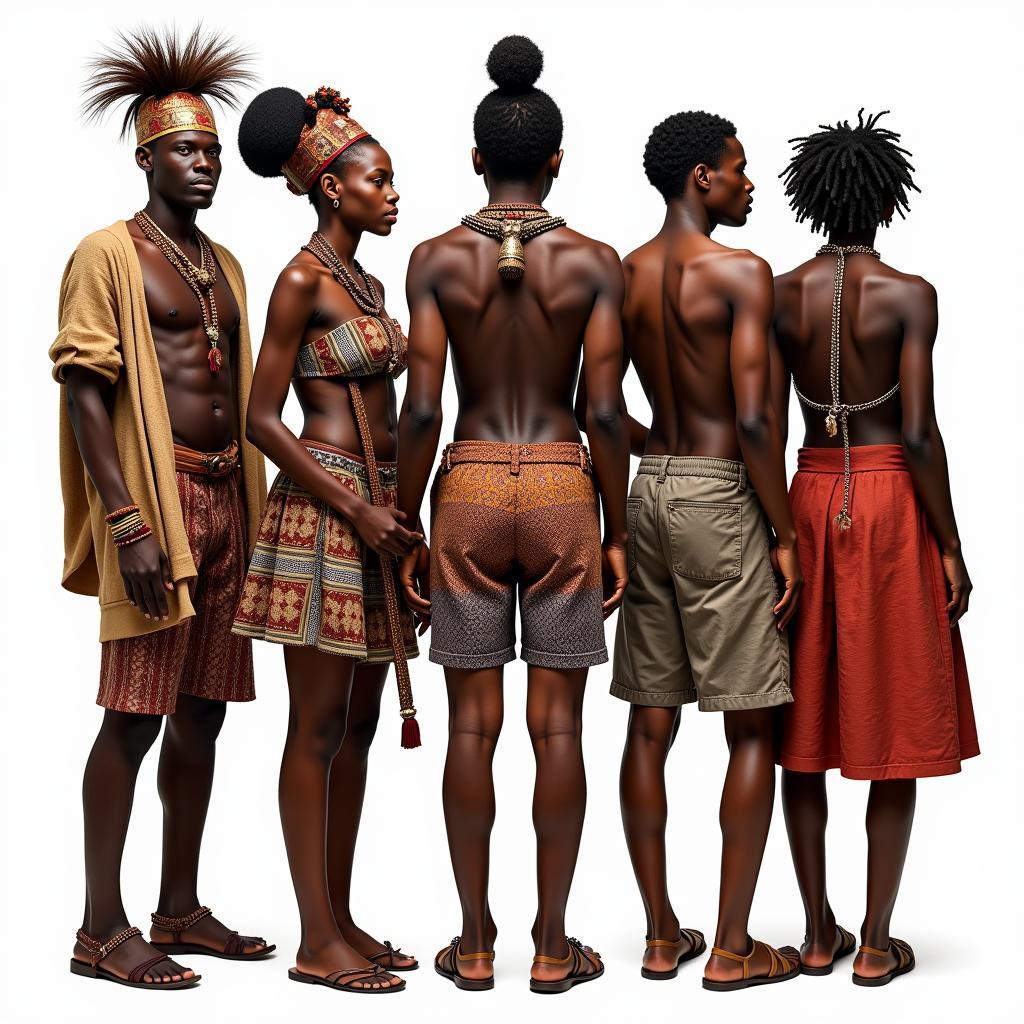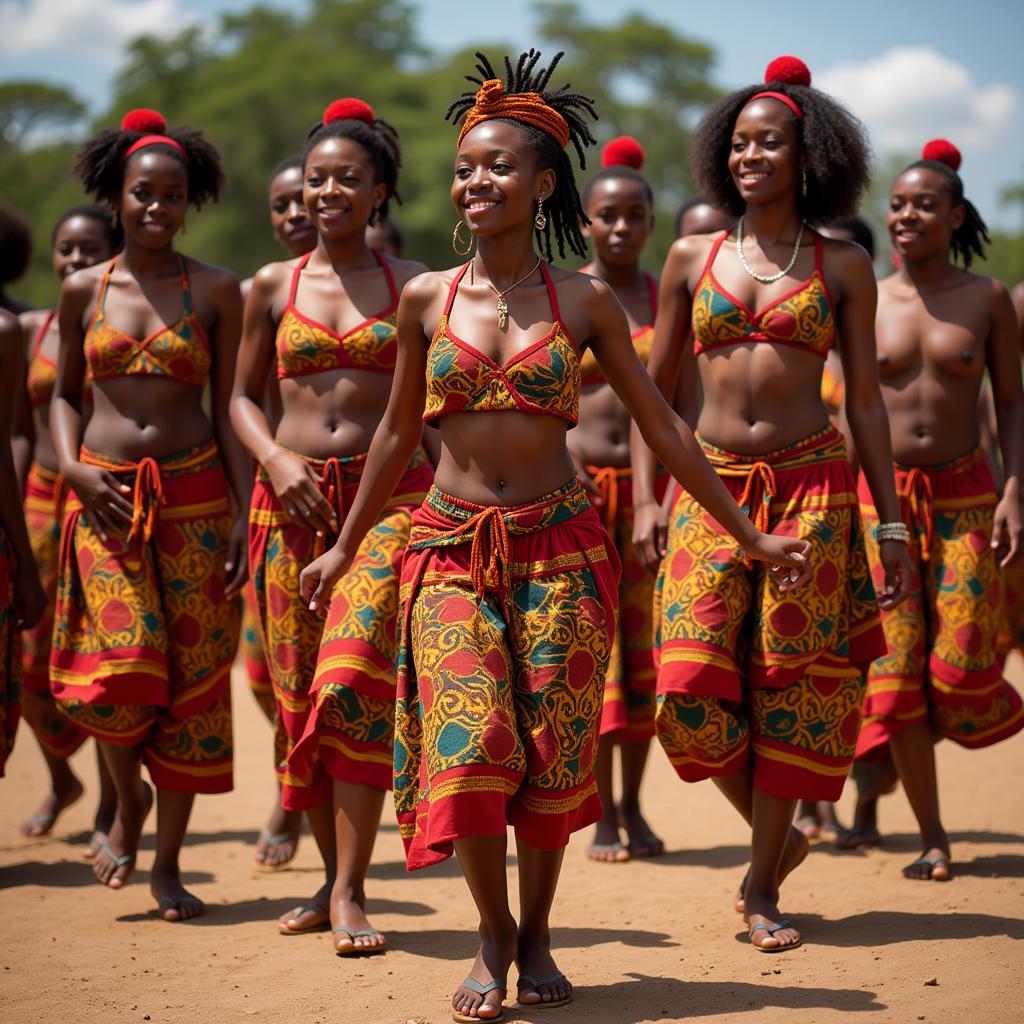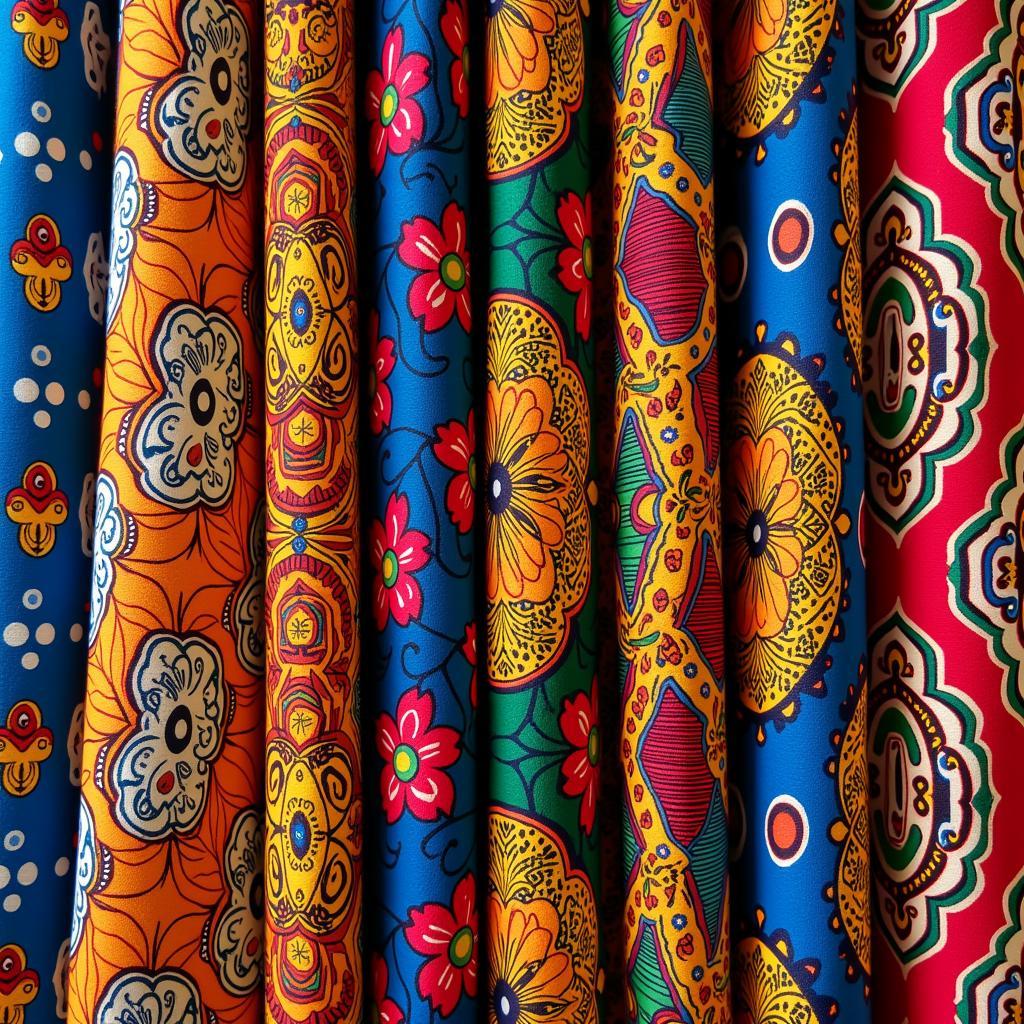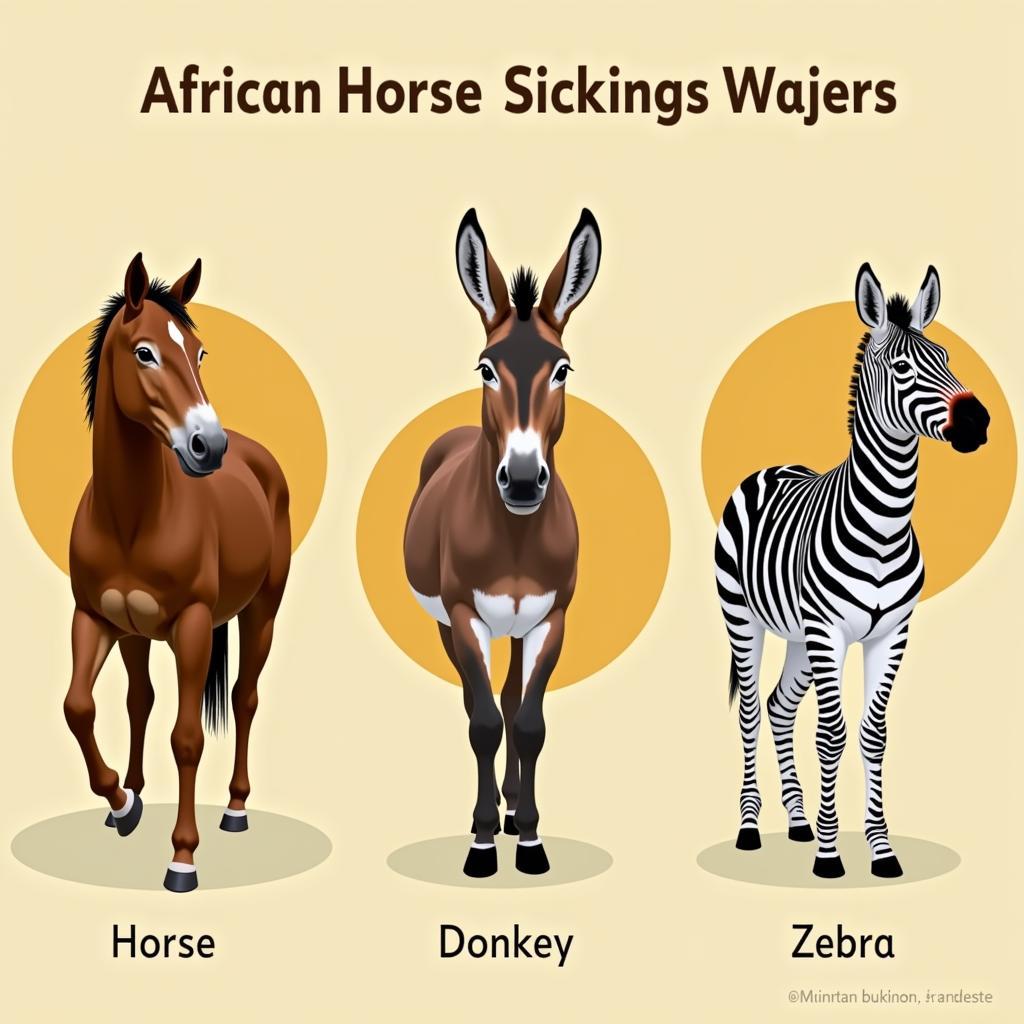Unveiling the Rich Tapestry of African Attire Meaning
African Attire Meaning goes far beyond simple clothing. It’s a vibrant language spoken through textiles, patterns, and adornments, reflecting a rich tapestry of cultural heritage, social status, and spiritual beliefs. From the intricate beadwork of the Maasai to the bold Kente cloth of Ghana, each garment tells a story, connecting the wearer to their ancestry and community.
Understanding african attire meaning requires delving into the diverse traditions and customs across the continent. Each region, tribe, and even family may have unique styles and symbolism associated with their clothing. Color, for instance, plays a crucial role. In some cultures, red represents power and vitality, while white signifies purity and peace. Similarly, specific patterns and motifs can denote clan affiliation, marital status, or even profession. For example, the Adinkra symbols of the Akan people of Ghana communicate profound proverbs and concepts.
Exploring the Symbolism in African Attire
African clothing often incorporates meaningful symbols and motifs that reflect the wearer’s beliefs and values. Animals, plants, and celestial bodies are common themes, each carrying its own significance. The lion, for instance, may represent strength and leadership, while the cowrie shell symbolizes prosperity and fertility. These symbols are not merely decorative; they are powerful expressions of cultural identity and spiritual connection.
The materials used in african attire also hold significance. Handwoven fabrics, such as Kente cloth and Bogolanfini (mud cloth), are highly valued for their craftsmanship and cultural significance. Kente cloth, with its intricate geometric patterns and vibrant colors, is often worn during special occasions and ceremonies, reflecting the wearer’s prestige and social standing. Similarly, Bogolanfini, traditionally made in Mali, is known for its mud-dyed patterns and is associated with protection and healing. Even today, many artisans continue to create these traditional textiles, keeping the cultural heritage alive.
After this paragraph, you might be interested in exploring more about African Kanga Wrap.
African Attire: A Window into History and Tradition
African attire provides a glimpse into the rich history and traditions of the continent. By studying the evolution of clothing styles, we can learn about the influences of trade, migration, and cultural exchange. For instance, the introduction of European fabrics and tailoring techniques in the colonial era led to the development of new hybrid styles, blending traditional African aesthetics with Western influences. This fusion of styles reflects the ongoing adaptation and innovation within African fashion.
Furthermore, african attire meaning is often deeply intertwined with storytelling. Many garments are adorned with intricate embroidery or beadwork that depicts historical events, myths, and legends. These wearable narratives serve as a way to transmit cultural knowledge and values from one generation to the next. By understanding the stories embedded within these garments, we can gain a deeper appreciation for the rich oral traditions and cultural heritage of Africa. You might also like to explore more on African Gold Plated Hair.
How African Attire Reflects Social Status and Identity
African clothing plays a vital role in communicating social status and identity. Specific garments and adornments are often associated with particular age groups, social classes, or occupations. For example, elaborate headdresses and beaded jewelry may signify leadership or royalty, while specific hairstyles and body markings can indicate a person’s clan or ethnic group. Through their attire, individuals express their place within the social fabric of their community.
 African Attire: Social Status and Identity
African Attire: Social Status and Identity
Moreover, the meaning of african attire can vary significantly depending on the context. Certain garments may be reserved for specific ceremonies, festivals, or rituals. For example, brightly colored robes and masks might be worn during masquerade performances, while traditional wedding attire can be incredibly ornate and symbolic. By understanding the context in which clothing is worn, we can gain a deeper understanding of its cultural significance. For men’s fashion inspiration, consider checking out African Inspired Clothing Mens.
Conclusion: Appreciating the Depth of African Attire Meaning
African attire meaning is multifaceted and profound. It is a powerful expression of cultural identity, social status, and spiritual beliefs. By understanding the symbolism, history, and traditions embedded within these garments, we can gain a deeper appreciation for the rich and diverse cultures of Africa. Let us continue to explore and celebrate the vibrant tapestry of african attire and the stories it tells.
FAQ
-
What is the significance of Kente cloth? Kente cloth is a handwoven fabric from Ghana, often worn during special occasions and symbolizing prestige and social standing.
-
What are some common symbols found in African attire? Animals, plants, and celestial bodies are common themes, each carrying its own significance, such as the lion representing strength and the cowrie shell representing prosperity.
-
How does African attire reflect social status? Specific garments and adornments are associated with particular age groups, social classes, or occupations, signifying leadership, royalty, or clan affiliation.
-
What is the role of color in African attire? Color plays a crucial role, with different colors symbolizing different meanings depending on the culture. Red may represent power, while white signifies purity.
-
How has African attire evolved over time? Influences from trade, migration, and colonization have led to the development of new hybrid styles, blending traditional aesthetics with Western influences.
-
Where can I find authentic African attire? You can explore various online marketplaces and connect with artisans directly to find authentic pieces.
-
How can I learn more about the meaning behind specific African attire? Researching specific cultures and traditions, visiting museums, and engaging with cultural experts can provide deeper insights.
Need more assistance? Contact us!
Phone: +255768904061
Email: kaka.mag@gmail.com
Address: Mbarali DC Mawindi, Kangaga, Tanzania.
We have a 24/7 customer service team ready to help.


